Dear Readers, Delicious, healthy and good for your beauty: coconut oil was considered the ultimate superfood for a long time. Then it was suddenly said that oil was “pure poison”. How healthy or harmful is the oil in reality? Below you will find out everything about coconut oil, from its effects and risks to tips.
What coconut oil actually is
Coconut oil is extracted from the aromatic flesh of coconuts. The flesh, also called copra, is dried, crushed and then pressed in so-called oil mills.
Like the majority of all cooking oils, including linseed oil and black cumin oil, coconut oil is also produced through a pressing process.
Depending on the purpose for which it is to be used later, the oil is further processed after pressing. The end product is usually clear or whitish, sometimes slightly yellow in color.
Special features of coconut oil
One of the special features of coconut oil is that it has a solid consistency at room temperature. This is why it is sometimes referred to as coconut fat. At temperatures above 25 degrees Celsius, however, it becomes liquid.
Coconut oil achieved its worldwide breakthrough with the success of superfood.
healthy foods that play an important role in a balanced and conscious diet.
But then suddenly critical voices were raised, claiming that the oil was not as healthy as previously thought; on the contrary, it was even harmful to health. Below you will find out what ingredients are in the mild oil and whether coconut oil is healthy or unhealthy.
Ingredients of coconut oil
Together with chia seeds and avocado, coconut oil has long been considered a particularly potent superfood that not only makes you healthy but also beautiful.
And there are actually some nutrients in the fat that speak to a healthy effect. These primarily include vitamin E.
Vitamin E
Vitamin E is also known as the “cell protection vitamin” and, together with vitamin C, vitamin A and the mineral zinc, plays an extremely important role in your immune system .
It is responsible for defending against harmful molecules, so-called “free radicals”, which can attack your cells and trigger dangerous mutations.
But vitamin E not only protects and safeguards your cells from the inside, but also from the outside: the nutrient has a moisturizing and anti-inflammatory effect.
This protects your skin barrier, prevents pathogens from penetrating your skin cells and helps them regenerate from injuries.
Calcium
Calcium is one of the minerals, elementary nutrients that your body needs, just like vitamins, to survive and function.
Together with magnesium and potassium, calcium is one of the macroelements.
These are minerals that your body needs in large quantities. Calcium is of fundamental importance for your body: it forms the basis for your bone substance. Without calcium, your bones become brittle and prone to fractures.
But the mineral can do even more: It also has a significant influence on muscles, nerves, blood clotting and various metabolic processes. Due to its calcium content, even if it is not that high, coconut oil contributes to your overall health when consumed regularly.
Essential amino acids
Amino acids are one of the basic building blocks of the human body. They are used to form proteins, which your body then uses to build tissue. Muscles, skin and hair cannot be formed without proteins.
But although your body depends on the molecules, it cannot produce some amino acids – as well as minerals and vitamins – on its own.
These are the so-called essential amino acids, which you must regularly supply to your organism through your diet.
Coconut oil is a valuable addition to your diet because it contains some of the much-needed amino acids and helps your body maintain and even improve its normal function.
Saturated fatty acids
The components of coconut oil mentioned so far include vitamin E, calcium and essential amino acids.
However, the main component of fat is another group of nutrients: the so-called saturated fatty acids.
Saturated fatty acids are an important building block of fat, which, contrary to its bad reputation, is one of the macronutrients that your body needs to stay healthy and function properly, along with carbohydrates and proteins.
Functions of saturated fatty acids
Contrary to popular belief, saturated fatty acids do not represent useless ballast for your body, but rather fulfil specific functions.
They serve as an energy source and energy storage, protect the internal organs, influence hormone metabolism and your immune system.
However, this healthy and necessary effect of unsaturated fatty acids can be reversed if you consume too much of them.
Risks of saturated fatty acids
With only 10 percent of your daily energy intake, saturated fats should not take up too much space in your diet.
In larger quantities, the organic compounds have an effect that can be dangerous for your body: they drive up your cholesterol levels. Cholesterol is actually not a bad thing, on the contrary.
Your body even produces it itself. However, if you have too much of it in your body, it builds up in your arteries, where it can cause vascular damage and calcification, which can lead to heart attacks and strokes.
Saturated fatty acids increase your cholesterol levels and can therefore increase the risk of cardiovascular disease.
But what does this mean for coconut oil, which consists of more than 80 percent saturated fatty acids?
Is coconut oil healthy or unhealthy?
Saturated fatty acids, i.e. organic compounds that increase your cholesterol level when consumed in excess and thus promote cardiovascular diseases, are found primarily in fatty animal products.
These include butter or cream, for example. But saturated fatty acids can also be found in sweets – and in plant-based foods such as coconut oil.
Saturated fatty acids perform important functions
Firstly, saturated fatty acids are not bad. On the contrary, your body depends on them because they fulfil specific functions and tasks. First and foremost, they provide your body with a lot of energy and help it to store it.
In addition, the organic compounds help protect your organs, influence the immune system and the production of hormones. These are messenger substances that control metabolism and thus the function of body parts and organs.
Saturated fatty acids are not harmful substances, but help your body to perform essential functions.
It depends on the quantity
Secondly, and this aspect is even more important, as with everything, it depends on the dosage.
Saturated fatty acids are not a problem as long as they only make up a small part (about 10 percent) of your daily energy intake.
The “side effect “of saturated fat, which is that it increases cholesterol, only occurs when you eat too much of it.
Even coconut oil fans who use the fat daily for frying or cooking due to its practical properties only consume a relatively small amount of the oil each day, which can even be adjusted to the daily energy requirement if necessary.
Coconut oil, like any other food, is only unhealthy if you use it in too large quantities.
Coconut oil for external use
Finally, critics of coconut oil often forget that the fat is not only used in the kitchen. Whether as a hair treatment, skin care or natural parasite protection for dogs, the oil, like argan oil and almond oil, is used externally in a variety of ways.
It has numerous positive effects. In summary, coconut oil is only unhealthy if you consume too much of it. And that applies to almost every food.
Uses and effects of coconut oil
Contrary to some prejudices, coconut oil is by no means unhealthy, but can instead be used in many ways to improve your health and physical well-being.
Below you will find an overview of the most practical and effective uses of coconut oil.
Care for skin and hair
In addition to saturated fatty acids, vitamin E is one of the most important ingredients in coconut oil. Vitamin E is also known as the “cell protection vitamin”.
It protects your cells from harmful molecules and thus protects them from so-called oxidative stress. This causes your cells to age faster and can even cause them to change in a detrimental way.
The vitamin E contained in coconut oil prevents this and also ensures that your cells are supplied with moisture. This keeps the outer skin cells in particular fresh and resilient.
The saturated fatty acids in the oil also form a protective film around your skin cells, helping them to retain moisture and elasticity and to ward off pathogens. Coconut oil can moisturize and soothe itchy, stressed and dry skin in particular.
The oil has the same effect on brittle and fragile hair. It can be massaged into both the ends and roots of the hair to strengthen and make it healthier.
While some people like to use the versatile oil on their face, others cannot tolerate it at all. Coconut oil has a comedogenic effect and can promote the formation of blemishes, especially on impure skin.
However, it can be used on the body without any concerns and will provide wonderful care for the skin.
Protection for your teeth
Due to its mild aroma, coconut oil is considered the best choice for oil pulling.
Oil pulling is a method for improving oral hygiene that comes from traditional Indian Ayurveda medicine.
This involves rolling vegetable oil around in the mouth and pulling it between the teeth for a certain period of time – usually 10, maximum 20 minutes.
You make similar movements with your mouth as if you were swirling wine on your tongue or sucking in your cheeks. The oil is supposed to loosen plaque and bacteria from the mucous membranes, tongue, gums and teeth.
Oil pulling is particularly useful in the morning after getting up before brushing your teeth. After you have pulled the oil through your teeth for a while, spit it out – you should definitely not swallow the oil – and then brush your teeth.
You should repeat this process daily. Many reports note very positive effects of oil pulling, from a reduction in bad breath to relief from gum problems and tooth decay to whitening of the teeth.
Coconut oil is preferred as an oil pulling fat primarily because of its taste and consistency.
Lose weight with coconut oil
Coconut oil is healthy, but it is not a miracle cure. So if you want to lose a lot of weight quickly, you should avoid the fat and use a short-term low-carb diet or clean eating.
However, if you want to lose weight in a long-term and healthy way, coconut oil can be a useful addition to your diet. The saturated fatty acids in the oil are excellent sources of energy and they also store the energy.
This means that after a meal containing coconut oil, you stay full for longer and feel less hungry. As part of a balanced diet and in combination with sufficient exercise, for example through yoga, Pilates or jogging, coconut oil can help you lose unwanted pounds.
Protection against ticks in dogs
Coconut oil can be an effective component of natural skin care, especially for dry skin. But the fat also has another effect when applied externally: it acts as a natural insect repellent.
When applied thinly, it acts as protection against mosquitoes, but other insects are also sensitive to the oil. These include fleas and ticks, which makes coconut oil an insider tip for pet owners in the fight against parasite infestation.
The oil works particularly well in combination with other natural tick repellents, such as black cumin oil. Both substances can be mixed into the animal’s water or food, or added to a brush.
This means that the oils are applied externally during grooming and scare away annoying parasites.
Frying with coconut oil
Coconut oil is suitable for both hygiene measures and beauty care. But ultimately it is also a cooking oil. This means that coconut oil is a practical addition to the kitchen.
Here the oil impresses not only with its tasty aroma, which gives a rounded finish to particularly exotic dishes, but also pastries and drinks, but also with its versatility.
Coconut oil is extremely heat-resistant and is therefore, unlike other high-quality vegetable oils, also suitable for frying, baking and deep-frying.
It also has a long shelf life as long as it is stored in a cool, dark place. Coconut oil is also a popular alternative to animal fats for vegans. It is worth trying out the many different options for coconut oil in the kitchen.
Saturated fatty acids, which are the main component of coconut oil, should only make up 10 percent of your daily energy intake, otherwise they can increase cholesterol levels and promote cardiovascular diseases.
Strengthening the immune system
Coconut oil consists largely of saturated fatty acids. However, the oil also contains vitamin E, calcium and essential amino acids.
Regular consumption of coconut oil, even in small amounts, in conjunction with a balanced diet, helps to meet your nutritional needs and supply your body with essential nutrients.
In an indirect way, your health is fundamentally strengthened. Because like a well-oiled machine, your body can only develop its full potential if it is supplied with all the necessary nutrients.
Especially when consumed in food, coconut oil contributes even more directly to strengthening your immune system. This is because it creates the conditions for certain nutrients to be absorbed and processed by your body in the first place.
This particularly applies to the so-called fat-soluble vitamins such as vitamins A, D, E and K. In contrast to the water-soluble vitamins C, B12 and folic acid, these can only be absorbed by your body and develop their effect if they are taken in conjunction with fat.
Coconut oil is ideal as a carrier substance for smoothies or dishes with lots of vegetables.
Risks of coconut oil
Coconut oil is healthy, delicious and versatile. As long as you don’t consume the fat in excessive amounts, you don’t have to worry about the saturated fat it contains.
And yet there are a few aspects you should consider if you really want to enjoy the oil in a healthy and safe way.
Risk of contamination
If you use coconut oil because of its healthy ingredients and beneficial effects, you should definitely pay attention to the quality of the products when purchasing them.
In 2018, Stiftung Warentest tested 15 coconut oils from various suppliers. Only a third of the products tested received the rating “good”. Seven oils, on the other hand, were only “satisfactory” and two “adequate”.
One product even received the rating “unsatisfactory” because it contained mutagenic and carcinogenic substances and was subsequently removed from the supplier’s range.
Time and again, the oils become contaminated by harmful substances that get into the coconut oil due to poor harvesting or production conditions.
To eliminate the risk of contamination, you should therefore buy products that are as high quality as possible. You should be suspicious of noticeably low prices. If possible, it is worth choosing organic products.
Due to the production standards, the risk of contamination is significantly lower than with conventional oils, so you can enjoy coconut oil without any concerns. Of the five oils that Stiftung Warentest rated as “good” in 2018, three were organic products.
Environmental issues
They are full of vitamins and minerals, increase performance and prevent diseases: it is not without reason that superfoods are popular with everyone who wants to eat consciously and in a balanced way.
This also applies to coconut oil.
But what is good for the body is harmful to the environment in the long run: a lot of environmentally harmful CO2 is released during the transport of food. The production standards in other countries also often do not make a good impression by ecological standards.
As a consumer, you can counteract this problem in various ways.
This is what you can do as a consumer
Firstly, it is worth using organic products. Not only are they of better quality, they are also produced in accordance with ecological standards and therefore have a better environmental impact.
Second, you should be careful to eat exotic foods in moderation. Coconut oil is a good example of a superfood that is healthiest in smaller quantities. Third, you should mix foreign and local foods for a balanced diet .
This not only ensures the best results in terms of taste, but the superfoods also support each other in terms of their effects.
For example, you can alternate pak choi and kale, mix goji berries with blueberries in yogurt, and replace amaranth with buckwheat.
In the kitchen, coconut oil can be alternated with rapeseed oil, pumpkin seed oil and olive oil; for natural care, the effect of the fruity oil can be supplemented with linseed oil and black cumin oil.
Experience reports vs. research situation
Whether as a natural cosmetic, an insider tip against bad breath or a long-term aid in losing weight, coconut oil is said to have many positive effects.
However, there is still little scientific evidence to support the effectiveness of the oil. Does this mean that the health-promoting effects of coconut oil are ultimately just a fabrication?
The positive effects of coconut oil are proven by countless testimonials. These are mostly observations from private individuals who describe the effects of the oil on their body and their health.
The result is often the same: As part of a healthy, balanced diet and an active lifestyle. Coconut oil helps to strengthen your health and increase your physical well-being.
The industry has also long taken advantage of the properties and effectiveness of coconut oil. It forms the basis of numerous cosmetic products and is used in many sweets.
So there is nothing wrong with incorporating coconut oil into your diet and beauty routine from now on. However, you should be aware that the fragrant fat is not a miracle cure. If you want to take advantage of its healthy effects, you need a little patience.
And the healthier you live overall, the better the oil will work. So feel free to experiment and test out in which form and in combination with which measures the oil works best for you.
Buying and storing coconut oil
Coconut oil is now widely available. You can therefore buy it both online and in retail stores. You can find the oil in grocery stores, drugstores, health food stores and organic stores.
Coconut oil is usually sold in jars with screw or swing tops so that you can reseal the oil airtight after opening it.
If you store it in a cool place protected from light, the oil should last for at least a few months, sometimes even longer.
However, the refrigerator is not a good option, as condensation can form inside the container and contaminate the oil.
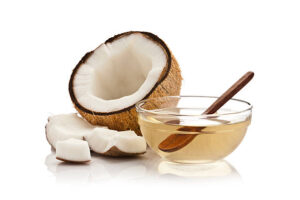
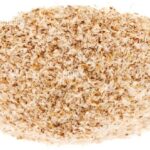

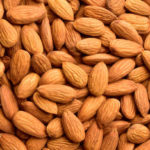

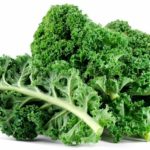

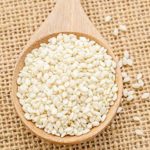





Leave a Reply